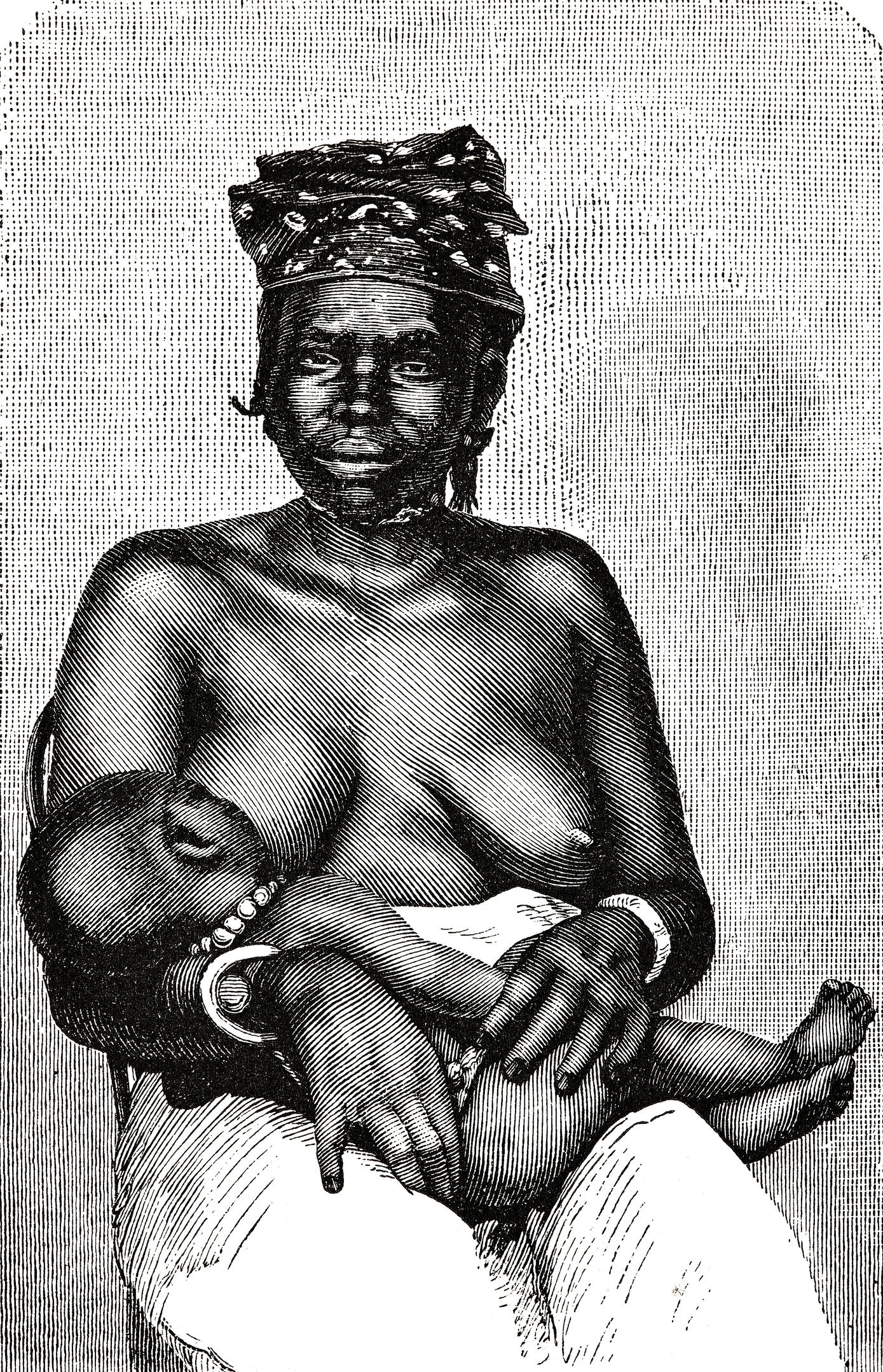
Source: clu / Getty
Black people with the capacity for pregnancy are facing an ongoing maternal health crisis. Black women are two to three times more likely than white women to die from pregnancy-related complications. In addition, Black infants have over two times the infant mortality rate of white infants due to preterm birth, low birth weight, or complications after birth.
Breast/chestfeeding can help reduce the racial gap in infant mortality rates and promote the health of Black people with the capacity for pregnancy. Breast/chestfeeding provides infants with the nutrition they need to protect against illnesses and death. Further, breast/chestfeeding lowers people with the capacity for pregnancy’s risk of breast cancer, Type 2 diabetes, and high blood pressure.
Despite breast/chestfeeding’s benefits, the United States has one of the lowest breastfeeding initiation rates among high-income nations. Fewer Black infants are ever breastfed compared with all other racial and ethnic groups. Lower breastfeeding initiation rates among Black people with the capacity for pregnancy result from systemic racism that leaves them without adequate support to breast/chestfeed, along with the United States’ history of regulating Black women’s autonomy over their bodies. Undoing these forms of harm is at the core of reproductive justice, which is the human right to bodily autonomy, to have or not have a child, and the right to parent one’s children in safe spaces.
In honor of National Breastfeeding Month, World Breastfeeding Week, and Black Breastfeeding Week, the National Birth Equity Collaborative (NBEC) reaffirms that it takes a village to raise a child. Addressing the Black maternal health crisis requires a concentrated investment into supporting Black breast/chestfeeding, every step of the way.
Structural racism, rather than individual characteristics like race, education, or income, leaves Black people with the capacity for pregnancy without the support they need to breast/chestfeed if they can do so. For instance, the United States has long regulated Black people with the capacity for pregnancy’s bodily autonomy. Slaveholders forced enslaved Black women to be wet nurses for their children. In turn, Black women lost time to breastfeed and bond with their own babies.
Further, racism in the healthcare system negatively affects Black people with the capacity for pregnancy’s breast/chestfeeding outcomes. Even NBEC’s own Senior Policy Analyst, Denys Symonette Mitchell, has described infant formula being pushed on her and receiving an electric pump no more than 6 hours postpartum, rather than being encouraged to breastfeed despite her unyielding, widely shared desire to nurse. As she expounds, these are not isolated instances – Black babies are 9 times more likely to be given infant formula in the hospital than white babies. In addition, NBEC’s Policy Intern, Adrian Jones, was not allowed to have skin-to-skin contact with her baby. She described her postpartum experience as an “invasive process” after two lactation consultants forcefully handled her while demonstrating breastfeeding, both of whom were white women. Like many other Black people with the capacity for pregnancy, Adrian noted that during her breastfeeding journey, she did not have “village moms,” elders in the community who have extensive experience supporting people with the capacity for pregnancy. After connecting with a Black breastfeeding alliance in her area, she successfully breastfed her child for 9 months. These stories show, along with previous research, that racism and lack of diversity within the perinatal workforce prevent Black people with the capacity for pregnancy from accessing the support they need postpartum for breastfeeding initiation and duration.
In addition, racism impacts Black people with the capacity for pregnancy’s access to support in the workplace that allows for breast/chestfeeding. Black people have less access to paid leave, which can affect people with the capacity for pregnancy’s breast/chestfeeding journeys. Studies show that access to paid leave allows women to breastfeed longer and more successfully, reduces their risk of breast and ovarian cancer, and reduces infants’ risk of illness and mortality. Yet, the U.S. is the only high-income nation that does not guarantee any form of paid maternity leave, and only 56% of all workers qualify for the Family and Medical Leave Act, which guarantees 12 weeks of unpaid leave. Two-thirds of workers who take unpaid leave report having trouble making ends meet, and 27% return to work early as a result. With less access to paid leave, Black people with the capacity for pregnancy have less support in place to successfully breast/chestfeed.
To address the many facets of the ongoing maternal health crisis, we call on Congress to pass the Black Maternal Health Momnibus Act of 2021, led by Representatives Underwood (IL-14) and Adams (NC-12) and Senator Cory Booker (D-NJ), to address the ongoing maternal health crisis. The Momnibus, which is a set of 12 individual bills that comprehensively address the ongoing Black maternal health crisis, upholds many reproductive justice tenets. More specifically, the Perinatal Workforce and Kira Johnson Acts both provide support for Black breast/chestfeeding.
The Perinatal Workforce Act establishes grant programs to grow and diversify the breast/chestfeeding support workforce culturally congruent care to people with the capacity for pregnancy throughout the prenatal, labor, delivery, and postpartum periods. The Kira Johnson Act funds Black women-led community-based organizations that are leading the charge to protect moms. It also supports anti-bias and anti-racism training programs, research, and programs to promote accountability in maternity care settings.
This Black Breastfeeding Week’s theme, “The Big Pause: Collective Rest for Collective Power” reminds us that “Black people deserve rest.” Rest is an act of resistance, especially amidst the ongoing twin pandemics of COVID-19 and racial oppression. Rest is revolutionary in a world that prioritizes profit over people, individualism over community care, and work over breaks. As a Black-woman led and staffed organization, we pause to recognize the unique barriers Black people with the capacity for pregnancy face in breast/chestfeeding. We honor Black Breastfeeding Week by calling for an investment in Black breast/chestfeeding as a critical step forward in the fight for reproductive justice and liberation for all Black people.
Nana Adjeiwaa-Manu (she/her) is a Ph.D. Candidate of Sociology, a Writer and a Federal Policy Graduate Intern at the National Birth Equity Collaborative.
Follow her on Twitter @NanaAManu









